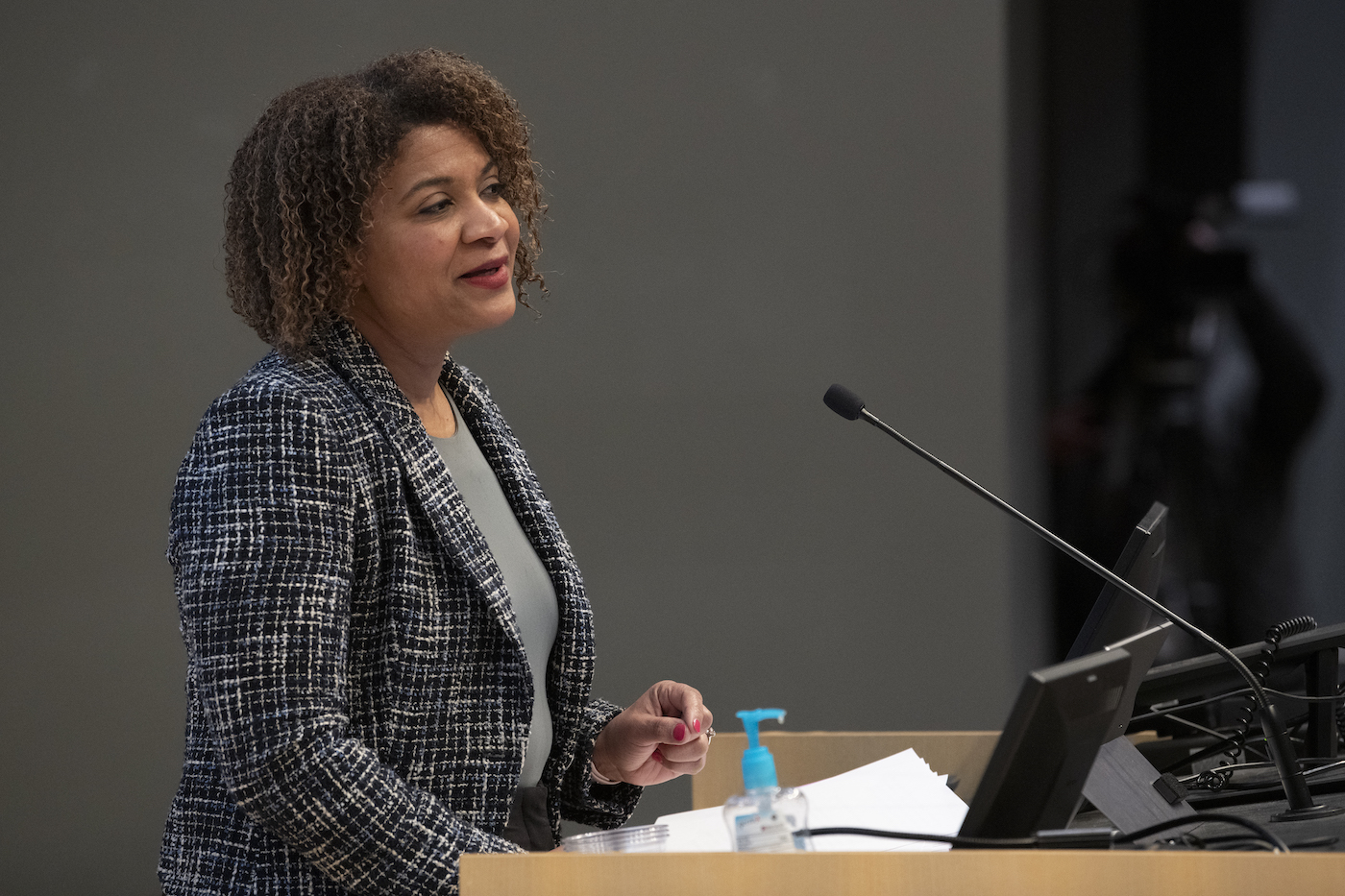Lessons of MLK Remain Relevant in Face of Assault on Equity, Goss Graves Says
February 14, 2024 Jen Badie
President and CEO of the National Women’s Law Center discusses hope in the face of despair and a to-do list for universities during keynote speech.
Despite the “extreme assault” on equity and justice in this country and the widespread feeling of despair because of it, we have to find a way to force ourselves to hold onto hope, Fatima Goss Graves, JD, said during her keynote speech at the University of Maryland, Baltimore’s (UMB) Rev. Dr. Martin Luther King Jr. and Black History Month Celebration on Feb. 6.
This was the first lesson from King’s life that Goss Graves, president and CEO of the National Women’s Law Center, president of the National Women’s Law Center Action Fund, and co-founder of the TIME’S UP Legal Defense Fund, imparted to the crowd of more than 350 that she believes still applies today.
Goss Graves began her speech, “Hope Is a To-Do List: Beyond the Supreme Court’s Affirmative Action Rulings,” by describing the current climate amid the Supreme Court decision last year that the affirmative action programs at the University of North Carolina and Harvard University violated the 14th Amendment and the decision’s aftermath, such as public universities in Arizona eliminating the use of diversity statements in their hiring process.
“The message that has been put forward is loud and clear. It’s that you’re not welcome here or maybe we’re not worthy of being here in the first place,” she said. “The season we are in at this point in history, the oppression we are facing, it is concrete, it is material, you can see it. It’s hard not to wonder if what we’re doing is actually making the sort of difference we need to make right now. And it is therefore hard not to give into the despair.”
Goss Graves went on to talk about a similar environment that the country faced in 1963 — the year civil rights activist Medgar Evers was murdered, four Black girls were killed in the bombing of a Birmingham, Ala., church, and Dr. King gave his “I Have a Dream” speech.
“Dr. King did not back down. He proclaimed that day and continued to proclaim, ‘I have a dream.’ So the question is, how is it in the face of violence and terror can you articulate a dream that this country had not yet realized?” she said. “He was so clearly a visionary. But also I believe he was pragmatic and practical and even political. In the midst of a giant backlash on the cusp of massive and generational change, he understood that giving hope was the best strategy available. Hope is the only emotion that keeps us moving as humans, it keeps us going. Hope is motivating. It is the only fuel for our endurance in this fight for justice.”
The second lesson Goss Graves discussed is that “the best way to sustain hope, especially when things feel hard, is to get into motion” as King did.
She said in the wake of the Supreme Court’s affirmative action decisions, universities should invest in diversity by helping first-generation students succeed and take school climate seriously by prioritizing anti-harassment and anti-discrimination efforts.
“We cannot be bullied, even if it is legal bullying, into shifting practices and policies that are perfectly consistent in the law,” Goss Graves said. “So instead — here comes the to-do list — this is a moment for colleges and universities to rededicate themselves to broader recruitment efforts to help ensure that underrepresented students of all identities can imagine success in your institutions and understand exactly how to make that happen. This is also a moment to think really hard about your admissions policies and practices.